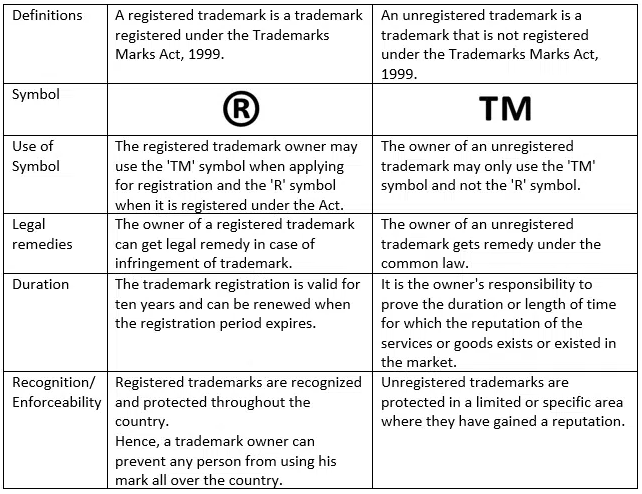Free Courses Sale ends Soon, Get It Now


Free Courses Sale ends Soon, Get It Now



Disclaimer: Copyright infringement not intended.
IN News
READ ALL ABOUT TRADEMARKS : https://www.iasgyan.in/daily-current-affairs/trademark#:~:text=What%20is%20a%20Trademark%3F,innovative%20product%20and%20creative%20activity.
Trademarks Act of 1999
What is ‘Passing off’?
When can a trademark’s registration be refused?
Trivia

|
PRACTICE QUESTION Q. How many of the following statements regarding trademarks and registered trademarks (R) in India is/are correct? 1.The TM symbol denotes an unregistered trademark. 2.The TM symbol has no legal standing or protection in and of itself. 3.The registration of a trademark is valid for 10 years from the date of registration, after which it can be renewed for another 10 years. Choose the correct code. A)One only B)Two only C)All D)None Answer. C) All All are correct. |
© 2024 iasgyan. All right reserved